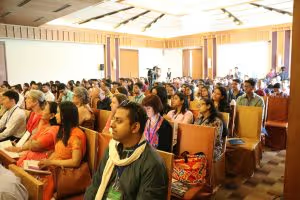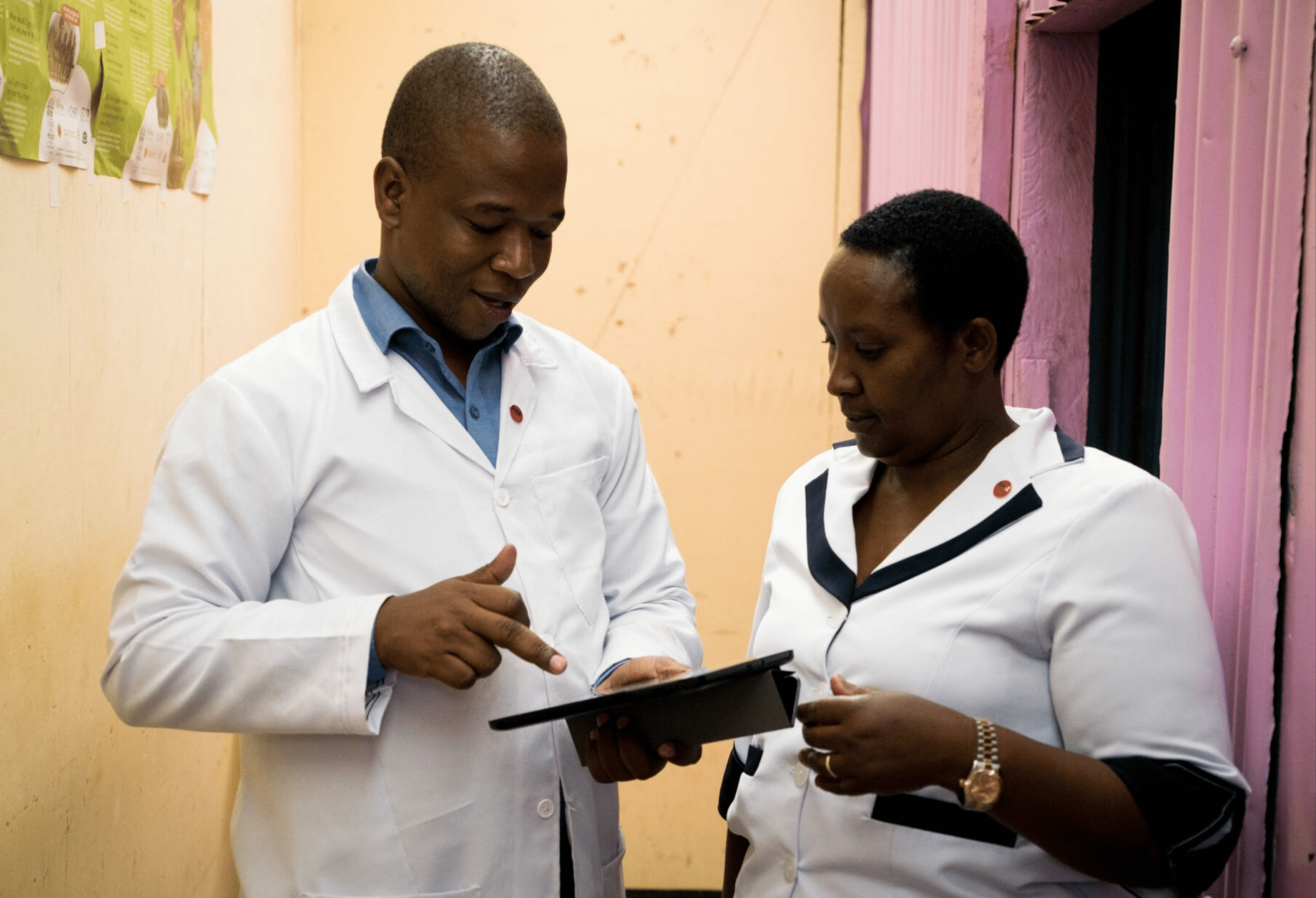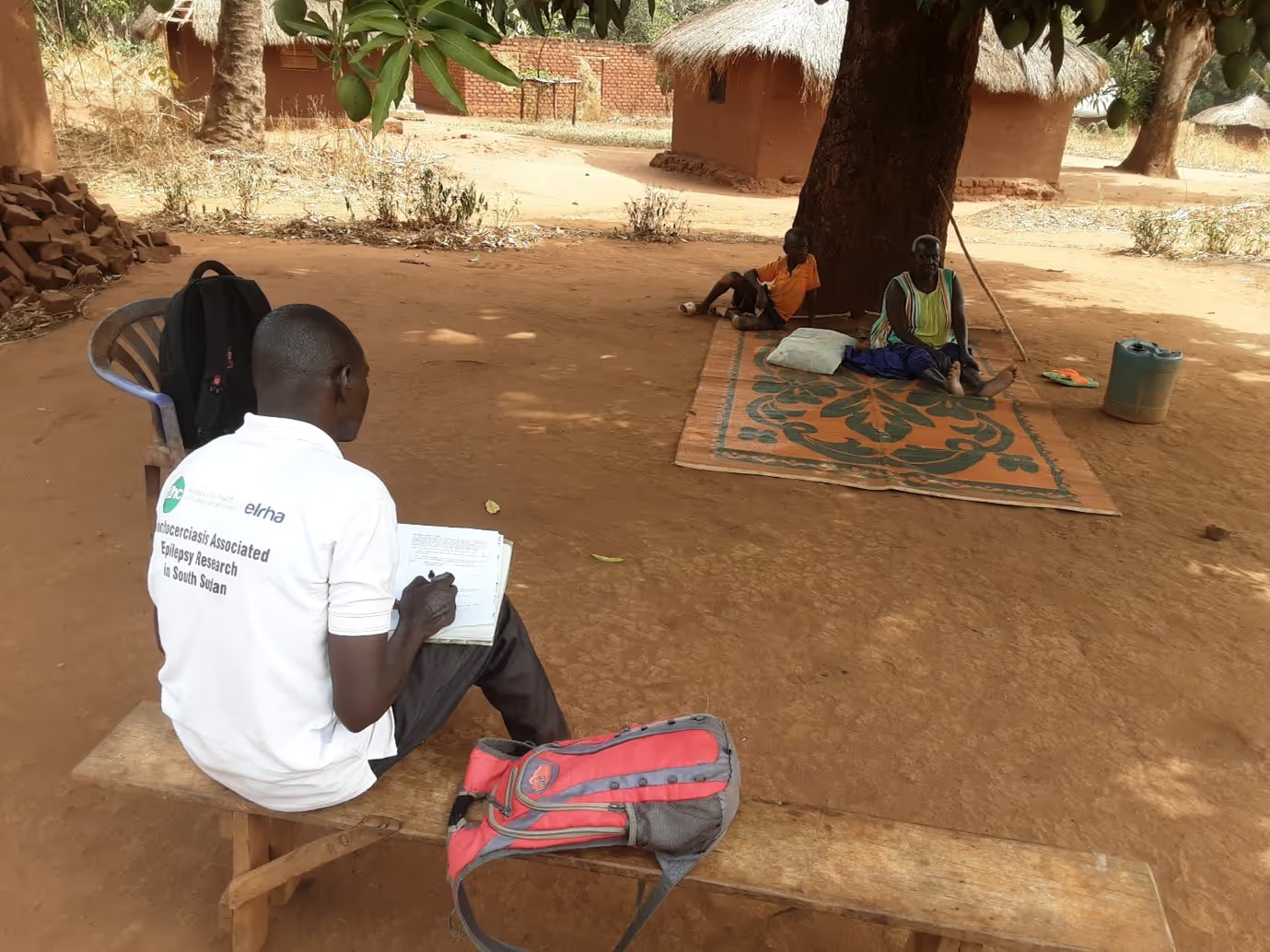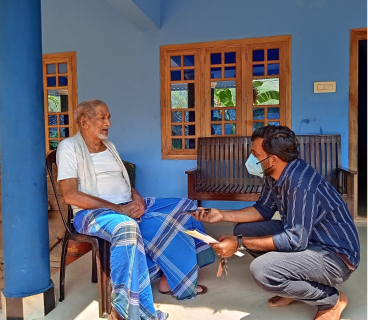The importance of the first 1000 days of life

ACF International Conference on Child's Health and Development: Improving children’s lives, Maximizing their abilities.
The conference addresses the importance of the first 1000 days of life that are known to be the foundation for multiple aspects of the child’s development such as emotional, cognitive and motor that favour the child’s mental and physical well-being.
Why is organising a conference important for our research uptake?
During the last two years of the research project, the strategy for uptake activities has been integrated in the continuous collaboration with relevant stakeholders from Ministry of Health. As a result, psychosocial services have been extended to all Outpatient Therapeutic Programmes that offer services for the management of Severe Acute Malnutrition in the district. Among other activities, we conducted two steering committees in Nepal and two others in Paris that allowed us to refine our network of collaboration, discuss issues related to research in crisis situations, and more technically, prepare the data analysis plan, etc.
[caption id=attachment_9522" align="alignleft" width="300"]

Dissemination of research findings at final conference[/caption]
The research project has come to its end in January 2017 with the last field activities. As part of the research uptake strategy, presenting the findings of the project during an international conference is an opportunity to invite experts and government authorities, share knowledge and discuss about other project initiatives in Nepal and elsewhere. It highlighted the importance of addressing the challenges in linking child’s health and early childhood development.
Why is linking children’s health and development crucial for their lives?
During the first years of life, a child’s ecosystem participates in supporting or challenging a child’s development. More and more studies demonstrate evidence on the influence of the social conditions, family’s stimulation, child care practices, nutritional status, maternal mental health and various stressful factors.
[caption id="attachment_9521" align="alignleft" width="300"]

Research uptake conference[/caption]
Two known crucial factors for the deterioration of child growth and development are undernutrition and poor psychosocial stimulation. Optimal child development is the product of the interplay between food, stimulation and sensitive responsiveness from caregivers (UNICEF, 2012). Moreover there is substantial evidence that early psychosocial stimulation with disadvantaged infants and young children can convene both short- and long-term benefits to cognitive and social development (Engle et al 2007; 2011).
In different contexts, from emergency to recovery, it is essential to consider new approaches to address issues related to maternal and child health. Early childhood programming is widely considered as a cost-effective period for intervention, given that child development proceeds sequentially – later development of competencies builds on earlier developmental successes.
9 recommendations were the main outcomes of the conference:
1. Promoting early childhood development is essential if we want that children reach their full potential;
2. Research and assessment results serve as an important tool to take things forward and to have operational implication in development of early childhood care;
3. ECD provides a very good return on investment : we invest in early childhood and children’s future;
4. There is a strong link between responsive care in relation to maternal health and child health both on prevention and promotion of mental health;
5. Maternal mental health is an important factor to integrate in the interventions;
6. It is not only the sole responsibility of a mother to take care of the child but it is equally important for the father and the community to contribute to children’s development and health: interventions should target caregivers, families and the communities to be successful;
7. Integration remains an important factor and now that there is evidence from the studies and researches that will guide the health system in Nepal it should create a better platform for more integrated interventions in the future by working in synergy to identify gaps and move forward;
8. Multi-sectorial interventions are effective and can be scaled-up;
9. The media plays a very significant role in bringing out issues of child health and development and highlight the evidence from researches on this topic.
ACF International Conference on Child's Health and Development: Improving children’s lives, Maximizing their abilities.
The conference addresses the importance of the first 1000 days of life that are known to be the foundation for multiple aspects of the child’s development such as emotional, cognitive and motor that favour the child’s mental and physical well-being.
Why is organising a conference important for our research uptake?
During the last two years of the research project, the strategy for uptake activities has been integrated in the continuous collaboration with relevant stakeholders from Ministry of Health. As a result, psychosocial services have been extended to all Outpatient Therapeutic Programmes that offer services for the management of Severe Acute Malnutrition in the district. Among other activities, we conducted two steering committees in Nepal and two others in Paris that allowed us to refine our network of collaboration, discuss issues related to research in crisis situations, and more technically, prepare the data analysis plan, etc.
[caption id="attachment_9522" align="alignleft" width="300"]

Dissemination of research findings at final conference[/caption]
The research project has come to its end in January 2017 with the last field activities. As part of the research uptake strategy, presenting the findings of the project during an international conference is an opportunity to invite experts and government authorities, share knowledge and discuss about other project initiatives in Nepal and elsewhere. It highlighted the importance of addressing the challenges in linking child’s health and early childhood development.
Why is linking children’s health and development crucial for their lives?
During the first years of life, a child’s ecosystem participates in supporting or challenging a child’s development. More and more studies demonstrate evidence on the influence of the social conditions, family’s stimulation, child care practices, nutritional status, maternal mental health and various stressful factors.
[caption id="attachment_9521" align="alignleft" width="300"]

Research uptake conference[/caption]
Two known crucial factors for the deterioration of child growth and development are undernutrition and poor psychosocial stimulation. Optimal child development is the product of the interplay between food, stimulation and sensitive responsiveness from caregivers (UNICEF, 2012). Moreover there is substantial evidence that early psychosocial stimulation with disadvantaged infants and young children can convene both short- and long-term benefits to cognitive and social development (Engle et al 2007; 2011).
In different contexts, from emergency to recovery, it is essential to consider new approaches to address issues related to maternal and child health. Early childhood programming is widely considered as a cost-effective period for intervention, given that child development proceeds sequentially – later development of competencies builds on earlier developmental successes.
9 recommendations were the main outcomes of the conference:
1. Promoting early childhood development is essential if we want that children reach their full potential;
2. Research and assessment results serve as an important tool to take things forward and to have operational implication in development of early childhood care;
3. ECD provides a very good return on investment : we invest in early childhood and children’s future;
4. There is a strong link between responsive care in relation to maternal health and child health both on prevention and promotion of mental health;
5. Maternal mental health is an important factor to integrate in the interventions;
6. It is not only the sole responsibility of a mother to take care of the child but it is equally important for the father and the community to contribute to children’s development and health: interventions should target caregivers, families and the communities to be successful;
7. Integration remains an important factor and now that there is evidence from the studies and researches that will guide the health system in Nepal it should create a better platform for more integrated interventions in the future by working in synergy to identify gaps and move forward;
8. Multi-sectorial interventions are effective and can be scaled-up;
9. The media plays a very significant role in bringing out issues of child health and development and highlight the evidence from researches on this topic.
Stay updated
Sign up for our newsletter to receive regular updates on resources, news, and insights like this. Don’t miss out on important information that can help you stay informed and engaged.
Related articles



Explore Elrha
Learn more about our mission, the organisations we support, and the resources we provide to drive research and innovation in humanitarian response.